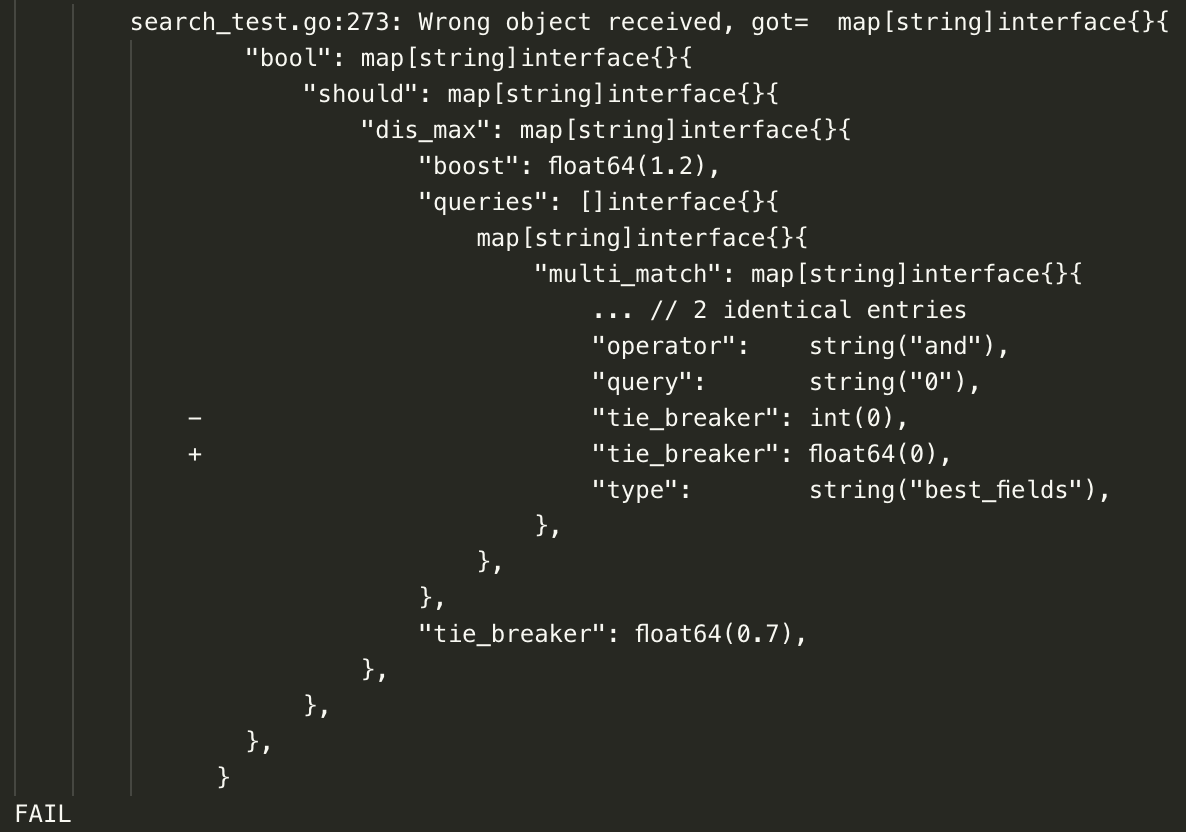I have a table-driven test case like this one:
func CountWords(s string) map[string]int
func TestCountWords(t *testing.T) {
var tests = []struct {
input string
want map[string]int
}{
{"foo", map[string]int{"foo":1}},
{"foo bar foo", map[string]int{"foo":2,"bar":1}},
}
for i, c := range tests {
got := CountWords(c.input)
// TODO test whether c.want == got
}
}
I could check whether the lengths are the same and write a loop that checks if every key-value pair is the same. But then I have to write this check again when I want to use it for another type of map (say map[string]string).
What I ended up doing is, I converted the maps to strings and compared the strings:
func checkAsStrings(a,b interface{}) bool {
return fmt.Sprintf("%v", a) != fmt.Sprintf("%v", b)
}
//...
if checkAsStrings(got, c.want) {
t.Errorf("Case #%v: Wanted: %v, got: %v", i, c.want, got)
}
This assumes that the string representations of equivalent maps are the same, which seems to be true in this case (if the keys are the same then they hash to the same value, so their orders will be the same). Is there a better way to do this? What is the idiomatic way to compare two maps in table-driven tests?

